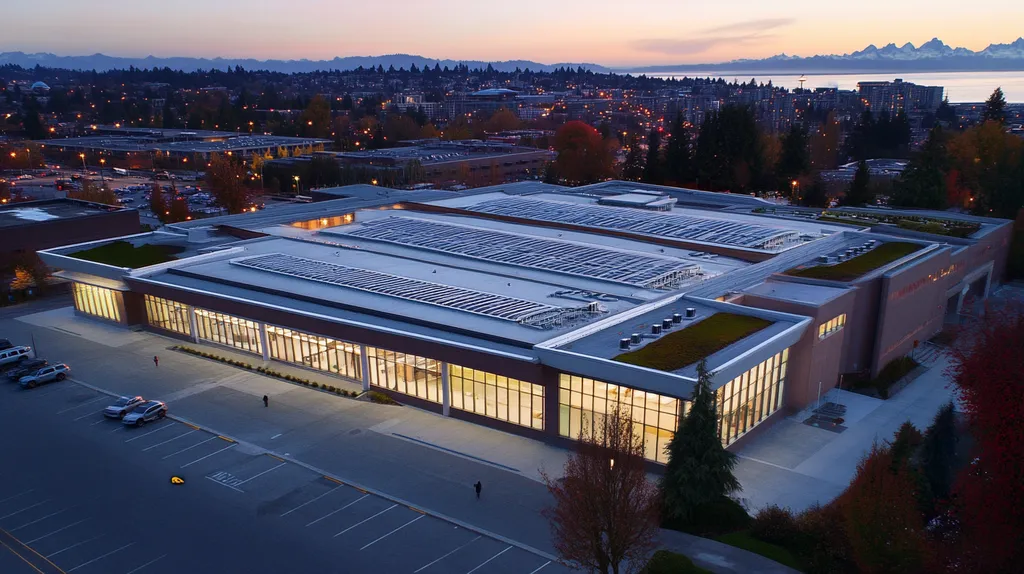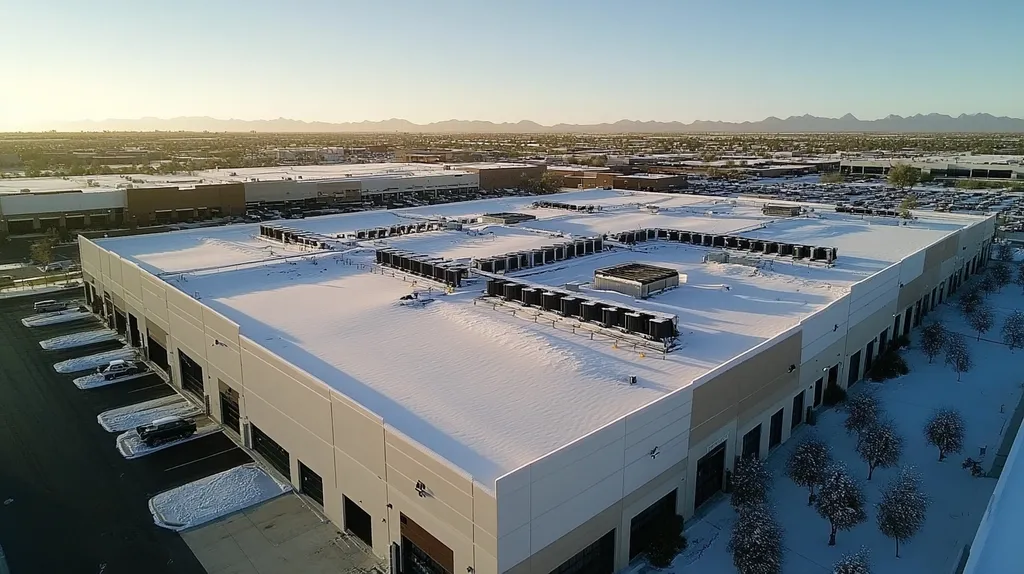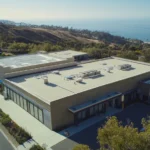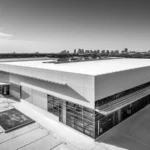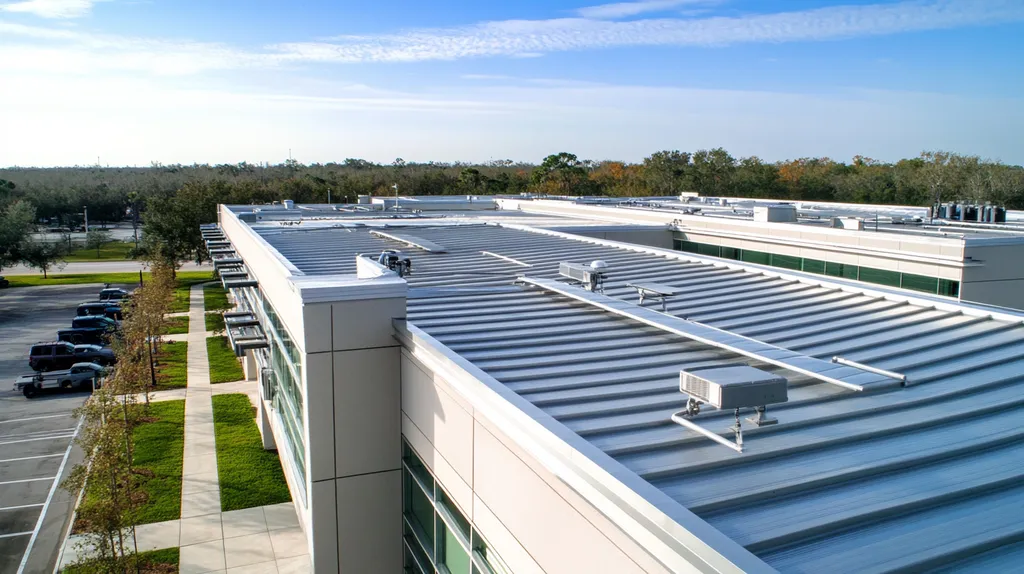Commercial roofing warranties represent a critical yet often misunderstood aspect of building protection, with over 70% of property owners inadequately securing their investments through improper warranty selection.
From material defects to installation guarantees, the complexity of modern roofing systems demands a thorough understanding of available warranty options and their implications.
This comprehensive guide examines the essential components of commercial roofing warranties, providing property owners and facility managers with actionable insights to maximize protection and minimize long-term costs across various roofing materials and systems.
SECTION 1: FUNDAMENTAL CONCEPTS
Understanding warranty options is essential for property owners and facility managers keen to protect their investments. Alarmingly, nearly 80% of roofing failures stem from poor installation or material defects, often resulting in expensive repairs. Choosing the right warranty not only safeguards investments but also extends the life of roofing systems. This section covers the types of commercial roof warranties, differentiates between manufacturer and contractor warranties, and clarifies the distinctions between warranty and insurance, equipping decision-makers with vital knowledge.
Types of Commercial Roof Warranties
Commercial roofs typically come with three main types of warranties: material, workmanship, and total system warranties. Material warranties protect against defects in the roofing materials, while workmanship warranties focus on the quality of the contractor’s installation. Total system warranties combine both, providing comprehensive coverage for issues related to materials and installation.
For instance, a material warranty can range from 10 to 30 years, depending on the roofing system selected. However, it’s crucial to examine the fine print, as many warranties specify particular conditions for coverage. Grasping these details can significantly influence the long-term performance of the roofing system.
Property owners should also pay attention to warranty coverage limitations and exclusions. Some warranties may not cover damages caused by extreme weather conditions or lack of maintenance. Therefore, reviewing these factors upfront is vital to ensure comprehensive protection against potential risks.
Moreover, not all warranties are equal. Different manufacturers offer various warranty terms and conditions, warranting careful consideration. Opting for high-quality materials backed by a robust warranty can substantially improve the building’s risk profile and protect property investments.
Manufacturer vs. Contractor Warranties
Grasping the differences between manufacturer and contractor warranties is crucial for property owners. Manufacturer warranties, provided by the roofing material companies, cover defects present in the materials used. In contrast, contractor warranties are issued by the contractors themselves and relate to the quality of their installation work.
Generally, manufacturer warranties provide long-term, standardized protection, while contractor warranties can vary significantly based on the contractor’s reputation and experience. For example, a contractor might offer a two-year workmanship warranty, whereas a manufacturer could cover the materials for up to 30 years.
Selecting a reputable contractor is as important as choosing quality materials. Poor installation can nullify manufacturer warranties, putting property owners at risk. Therefore, working with trustworthy contractors who understand the warranty landscape is crucial for securing adequate coverage.
Ultimately, the ideal strategy involves obtaining both warranty types. A solid material warranty from the manufacturer coupled with a reliable workmanship warranty from a skilled contractor creates a robust safety net, ensuring protection against unforeseen circumstances and securing the investment in roofing systems.
Warranty and Insurance Distinctions
Understanding the distinction between warranties and insurance is essential for commercial property management. Warranties are guarantees made by manufacturers or contractors that cover specific defects or failures under designated conditions. Insurance offers protection against a broader array of risks, such as accidental damage or liability claims.
For instance, a warranty may cover material defects for a specified timeframe, but it won’t guard against damage from severe storms or vandalism. In contrast, insurance typically encompasses various risks but may involve deductibles and premium costs that affect a property’s overall financial strategy.
Additionally, some warranties may require property owners to maintain certain insurance policies to remain valid. This can include general liability insurance or specific property coverage, which may create further obligations.
Both warranties and insurance are vital components of risk management for property owners. However, recognizing their distinct roles and how they interact can streamline decision-making and enhance the protection of roofing investments.
SECTION 2: SYSTEM COMPONENTS
A solid understanding of roofing system components and their warranty options is crucial for safeguarding investments. Many property owners overlook these nuances, which can lead to unexpected repair costs and significant financial setbacks. This section will break down the essential aspects of roofing warranties, focusing on material defects, workmanship guarantees, and system-wide coverage options that provide comprehensive protection.
Material Defect Coverage Explained
Material defect coverage is a critical element of roofing warranties. It shields property owners from issues arising from manufacturing flaws in roofing materials. For example, if a TPO or EPDM membrane fails prematurely due to a factory defect, the warranty may cover the cost of replacement, saving property owners from out-of-pocket expenses.
It’s important to carefully review the standards and reputations of different manufacturers. Not all companies offer the same level of quality or warranty terms. Some may provide strong coverage for a specified period, while others may have limited defect coverage.
Warranty terms can vary greatly among manufacturers. For instance, PVC roofing may come with a substantial 20-year warranty against defects, emphasizing the need for property owners to choose high-quality products backed by reliable warranties.
Regular consultations with roofing contractors are essential for understanding the materials’ defect coverage included in the warranty. This proactive approach can save money and prevent future headaches by clarifying what is and isn’t covered.
Workmanship and Installation Guarantees
Workmanship guarantees are just as critical as material defect coverage. These warranties protect against issues caused by improper installation. Without this kind of guarantee, property owners might be stuck with repairs from leaks or other failures caused by faulty installation.
For example, if a newly installed roof begins leaking shortly after completion due to poor workmanship, a solid workmanship guarantee will ensure the necessary repairs are performed at no extra cost.
Workmanship warranties typically range from one to ten years, varying by contractor. It’s important for property owners to grasp these time frames, as external factors can contribute to premature failures.
Due diligence is key; property owners should inquire about the specifics of workmanship guarantees. Clarity on this point can directly influence future roofing expenses and helps ensure peace of mind regarding installation quality.
System-Wide Coverage Options
System-wide coverage options provide a comprehensive safety net for property owners. Unlike narrower warranties, system-wide warranties cover various components of a roofing system, such as insulation and accessories, making them particularly beneficial for more complex roofing structures.
For instance, if a roof encounters an issue where flashing fails and causes water damage, a system-wide warranty ensures that all related components are addressed. This comprehensive approach significantly reduces the risk of unexpected costs, providing greater long-term value.
It’s crucial to critically evaluate these warranties, as they may come with stipulations regarding regular maintenance and inspections. Routine assessments may be necessary to maintain the warranty coverage.
In summary, selecting the right system-wide warranty can offer peace of mind, ensuring that the entire roofing assembly is protected against potential failures and securing the investment property owners have made in their roofing systems.
SECTION 3: IMPLEMENTATION METHODS
The successful implementation of commercial roofing warranties is crucial for property owners. Missteps during installation can void warranties, potentially leading to hefty repair costs and unnecessary downtime. In fact, studies indicate that 60% of roofing failures are attributed to improper installation techniques. This section will dive into the importance of contractor certification, the specific installation requirements needed to maintain warranty validity, and the specialized warranties available for mixed roof systems.
Contractor Certification and Its Impact
Contractor certification is vital for upholding roofing warranty validity. Many manufacturers stipulate that only certified contractors may install their materials. If a roof is placed by an uncertified contractor, the warranty could be void, leaving the property owner at financial risk.
Training and knowledge specific to roofing systems can significantly influence installation quality. For example, improper ventilation may lead to moisture accumulation, risking structural damage. By selecting a certified contractor, property owners can minimize these risks and prolong the lifespan of the roofing system.
Furthermore, certified contractors benefit from ongoing education and updates from manufacturers. This access to specialized training enhances the quality of installation and ensures roofs are built to last.
Ultimately, partnering with a certified contractor not only meets warranty requirements but also assures a better overall roofing experience for property owners.
Installation Requirements for Warranty Validity
Adhering to installation requirements is essential for maintaining warranty validity. Each roofing manufacturer develops specific guidelines that must be strictly followed; failing to do so can invalidate warranty claims.
For example, membrane roofing systems often necessitate particular methods of adhesion and must be installed within defined temperature ranges. Ignoring these critical guidelines can result in early roof failure, leaving property owners unprotected.
Proper documentation of the installation is equally important. Having clear evidence that the installation complied with manufacturer specifications is crucial when filing warranty claims. This documentation can serve as proof that the roofing system was installed correctly.
Moreover, maintaining open communication with the contractor throughout the installation process can help avoid future complications. Regular updates can ensure adherence to warranty conditions and project progress.
Specialized Warranties for Mixed Roof Systems
Mixed roof systems often incorporate various materials, leading to unique warranty options. These specialized warranties cater to the complexities of integrating different roofing materials. It’s crucial for property owners to understand the specifics of these warranties.
For instance, a commercial building utilizing both membrane and metal roofing may face distinct warranty terms for each material. Having separate warranties can complicate claims should issues arise, creating confusion.
Additionally, mixed systems may have unique maintenance requirements necessary to keep warranties intact. Regular inspections and adherence to a diligent maintenance schedule are essential to ensure every component operates efficiently.
Some manufacturers offer comprehensive warranties that cover the entire mixed system, providing a more straightforward approach. Property owners should actively seek details about these specialized warranties to make well-informed decisions.
SECTION 4: MAINTENANCE REQUIREMENTS
Neglecting proper maintenance can jeopardize warranty protections on commercial roofs, leading to premature failures and costly repairs. Regular upkeep is essential—not only does it extend the lifespan of roofing materials, but it also ensures safety and cost-effectiveness. This section highlights the critical maintenance practices needed, identifies common actions that can void warranties, and emphasizes the importance of scheduled inspections.
Preventative Maintenance to Maintain Warranty
Preventative maintenance plays a key role in protecting warranty coverage for commercial roofing systems. By conducting regular inspections, property owners can identify minor issues before they escalate into expensive repairs. Many manufacturers require documented maintenance—this includes routine cleaning and debris removal—to keep warranties valid.
Essential tasks often involve checking for loose flashing, inspecting seams for wear, and ensuring drainage systems are clear of blockages. By being proactive, property owners can significantly reduce the likelihood of unexpected leaks or damages. Moreover, keeping a documented maintenance schedule can simplify the claims process if problems arise.
Engaging professional roofing services for maintenance not only satisfies warranty conditions but also guarantees that tasks are performed accurately. Skilled technicians can detect subtle problems that may be invisible to the untrained eye. Regular maintenance also translates to operational savings by preventing costly emergency repairs later on.
In summary, routine upkeep is not just a good habit; it is essential for maintaining both the roof’s structural integrity and the warranties it carries. This small investment can yield significant returns in roof performance and longevity.
Common Actions That Void Warranties
Property owners can unintentionally void their roofing warranties through several common oversights. One frequent issue arises from using unapproved materials for repairs or modifications, which can invalidate the warranty. Always consult the roofing manufacturer or contractor before making any changes.
Unauthorized modifications, such as installing equipment or structures on the roof without obtaining proper approvals, can also nullify warranties. Additionally, neglecting drainage systems or failing to address visible wear and tear can result in water pooling, which often leads to leaks and further damage.
Attempts to perform repairs without professional help can sometimes exacerbate existing problems. Moreover, insufficient documentation of maintenance practices can undermine warranty claims. Keeping detailed records of all maintenance activities and repairs is crucial for ensuring warranty compliance.
Understanding these potential pitfalls is essential for property owners. By sticking to manufacturer guidelines and using certified professionals, they can safeguard their warranties and preserve property value.
Scheduled Inspections and Reporting
Implementing scheduled inspections is a proactive strategy for maintaining commercial roofing systems and ensuring warranty protections remain intact. Establishing a regular inspection schedule—typically twice a year—helps identify potential issues before they escalate into costly repairs.
Documenting inspection outcomes is essential. Detailed reports should include photos, findings, and any maintenance performed during the inspection. This documentation becomes invaluable when filing warranty claims, proving adherence to maintenance requirements.
Inspections should always be conducted by trained roofing professionals familiar with various roofing materials and systems. Many manufacturers offer their inspection services, simplifying compliance with warranty stipulations.
Additionally, building a partnership with a qualified roofing contractor can bring peace of mind. They can advise on potential concerns and ensure that all maintenance actions align with warranty conditions while maximizing the roof’s overall lifespan.
In conclusion, establishing a structured inspection and reporting protocol is crucial. By prioritizing these practices, property owners can maintain the integrity of their roofs and protect their investments.
SECTION 5: PERFORMANCE METRICS
Understanding performance metrics for warranties is essential for property owners and facility managers. The wrong warranty choice can lead to significant expenses and jeopardize building safety. Alarmingly, nearly 30% of commercial roofs fail before reaching their expected lifespan due to insufficient warranty coverage. This section dives into critical performance metrics that evaluate warranty options, including coverage periods, material and labor costs, and the transferability of warranties.
Measuring Warranty Coverage Periods
Warranty coverage periods are vital for property owners assessing the longevity of their roofing materials. Knowing how long coverage lasts aids in planning maintenance and budgeting for future repairs. Most commercial roofing warranties span 10 to 30 years, depending on the chosen materials.
Different roofing materials offer varying durations of coverage. For example, EPDM and TPO roofs generally come with warranties lasting 15 to 20 years, while metal roofs may have warranties extending up to 50 years. Evaluating these differences is critical for selecting materials that align with long-term operational goals.
Additionally, warranty terms can dictate whether coverage is prorated over time. A non-prorated warranty provides full coverage throughout its duration, offering greater financial security for property owners. Understanding these details empowers better-informed decisions and helps avoid unexpected costs.
To fully benefit from warranty coverage, regular inspections and documented maintenance are usually necessary. Property owners should be aware of these requirements, ensuring they meet them to protect both the roof’s integrity and the warranty’s validity.
Assessing Material and Labor Costs
When reviewing warranties, it’s crucial for property owners to consider both material and labor costs, as these factors heavily influence the total roofing investment. Many warranties cover only the materials, leaving labor costs as the owner’s responsibility if repairs are needed. This gap can result in surprise expenses, particularly if the roofing system fails soon after installation.
For instance, traditional built-up roofing (BUR) may have a lower material cost but incur higher labor costs due to installation complexities. In contrast, single-ply membrane systems, while slightly pricier initially, often lead to lower labor expenses due to simpler installation and maintenance processes.
Property owners should also contemplate the potential long-term costs tied to various warranties. A more comprehensive warranty might come with a higher upfront price but could lead to savings down the line by covering unexpected labor costs. Taking the time to understand these financial implications can enhance long-term budget management.
A thorough comparison of total ownership costs throughout the roofing system’s lifespan is essential. Facility managers must analyze these figures to identify the most economically viable options while aligning materials and labor with financial constraints.
Evaluating Transferability of Warranties
The transferability of warranties is a crucial consideration for commercial property owners, particularly those looking to sell their properties in the future. Warranties that are transferable can enhance a property’s value and appeal in the marketplace. By offering a transferable warranty, property owners can make their buildings more attractive to potential buyers, reassuring them of the roof’s reliability.
However, not all warranties allow for easy transfer. Some may necessitate additional fees or specific conditions that must be fulfilled before a transfer is valid. Understanding these requirements can help avoid complications and safeguard the investment represented by the roofing system.
For commercial properties, a warranty designed for smooth transfer can provide a competitive edge. Property owners can boost resale value by seamlessly passing on existing warranties, leading to quicker sales and potentially higher offers.
It’s essential for property managers to verify transfer terms with manufacturers to avoid unforeseen barriers when attempting to activate warranty transfers. This diligence helps protect their investment during future transactions.
SECTION 5: PERFORMANCE METRICS
The importance of understanding warranty performance metrics cannot be overstated for property owners and facility managers. A poorly selected warranty can lead to expensive repairs or replacements, ultimately jeopardizing budget constraints and building safety. Alarmingly, nearly 30% of commercial roofs fail before reaching their expected lifespan due to insufficient warranty coverage. This section will explore critical performance metrics that help evaluate warranty options, including coverage periods, material and labor costs, and transferability of warranties.
Measuring Warranty Coverage Periods
Warranty coverage periods serve as a vital metric for property owners assessing the life expectancy of their roofing materials. Knowing how long the coverage lasts is crucial for planning future maintenance and budgeting repairs. Most commercial roofing warranties range from 10 to 30 years, depending on the material used.
Different roofing materials also offer varying lengths of coverage. For example, EPDM and TPO roofs typically come with warranties lasting about 15 to 20 years, while metal roofs can have warranties extending up to 50 years. Evaluating these options is essential for selecting materials that align with long-term operational goals.
Moreover, warranty terms can indicate whether coverage is prorated over time. A non-prorated warranty provides full coverage throughout its duration, resulting in better financial security for property owners. Comprehending these nuances helps in making informed decisions and avoiding unexpected costs.
Regular inspections and documented maintenance activities are often required to maintain warranty validity. Property owners must stay informed about these requirements to fully benefit from their warranty coverage, ensuring both the roof’s integrity and the longevity of the warranty.
Assessing Material and Labor Costs
When reviewing warranties, property owners should carefully consider both material and labor costs, as these factors significantly impact the total roofing investment. Many warranties cover materials only, leaving owners responsible for labor costs if repairs are necessary. This gap can lead to unanticipated expenses, particularly if a roofing system fails shortly after installation.
For instance, while traditional built-up roofing (BUR) may have a lower initial material cost, it often incurs higher labor costs due to installation complexities. In contrast, single-ply membrane systems, while slightly pricier upfront, typically involve lower labor costs because of their easier installation and maintenance processes.
It’s also crucial to evaluate potential long-term costs related to various warranties. A comprehensive warranty may carry a higher initial price but could save money in the long run by covering unexpected labor expenses. Taking the time to understand these financial implications allows for better budget management.
Conducting a thorough comparison of total ownership costs throughout the roofing system’s lifespan is essential. Facility managers must analyze these figures to pinpoint the most economically viable options while aligning their materials and labor choices with financial constraints.
Evaluating Transferability of Warranties
Transferability of warranties is a key consideration for commercial property owners, especially those planning to sell their properties in the future. Warranties that are transferable can enhance a property’s value and market appeal. Offering a transferable warranty makes a property more attractive by assuring potential buyers of the roof’s reliability.
However, not all warranties are easily transferable—some may require additional fees or specific conditions to be met before a transfer can occur. Understanding these stipulations is critical to avoiding complications that could threaten the investment represented by the roofing system.
A well-structured warranty designed for easy transfer can give commercial properties a competitive edge. Property owners can boost resale value by seamlessly passing along existing warranties, leading to quicker sales and potentially higher offers.
Finally, property managers should confirm the specific terms for warranty transfer with manufacturers, ensuring they do not encounter unforeseen barriers when attempting to pass on the warranty. This diligence helps safeguard their investments in future transactions.
The Bottom Line
With over 40% of commercial roofing warranties being invalidated due to preventable oversights, understanding and properly managing warranty options has never been more critical for property owners.
The complexity of modern roofing systems, combined with evolving warranty requirements, demands a strategic approach to protection that encompasses material quality, installation expertise, and ongoing maintenance.
By carefully evaluating warranty coverage periods, maintaining proper documentation, and working with certified contractors, property owners can significantly reduce their exposure to costly repairs and replacements.
The future of commercial roofing warranty management lies in proactive oversight, comprehensive coverage options, and strategic partnerships with qualified professionals who understand the intricacies of various roofing systems.
Investment in proper warranty protection today will safeguard commercial properties against tomorrow’s challenges while maximizing long-term value.
FREQUENTLY ASKED QUESTIONS
Q. What are the types of commercial roof warranties?
A. Commercial roofing typically comes with three warranty types: material, workmanship, and total system. Material warranties protect against defects in roofing materials, while workmanship warranties cover installation quality. Total system warranties offer comprehensive coverage for both materials and installation, ensuring better protection for your investment.
Q. How does material defect coverage work for industrial roof warranties?
A. Material defect coverage protects against manufacturing flaws in roofing materials. If defects arise, such as a membrane failing prematurely, the warranty will typically cover replacement costs. The quality of materials and the specific warranty terms from different manufacturers can significantly impact this coverage.
Q. Why is contractor certification important for a commercial roof warranty?
A. Contractor certification is crucial because many manufacturers require certified installers to maintain warranty validity. Certified contractors have specialized training, ensuring roofing systems are installed correctly. Working with certified professionals minimizes the risk of installation errors that could void warranties and lead to costly repairs.
Q. What maintenance practices are necessary for commercial roof warranties?
A. Essential maintenance includes regular inspections, cleaning debris, and checking for issues like loose flashing. Many manufacturers require documented maintenance to keep warranties valid. Proactive maintenance helps prevent costly repairs and ensures that the roof remains in safe and effective condition.
Q. How do warranty coverage periods affect commercial roofing decisions?
A. Warranty coverage periods are crucial for planning future maintenance and budgeting repairs. Most warranties last between 10 to 30 years, depending on the materials. Knowing the duration helps property owners make informed decisions regarding material selection and long-term operational strategies.
Q. Can warranty transferability impact the resale value of a commercial property?
A. Yes, transferable warranties can enhance a property’s value and market appeal. Offering a transferable warranty assures potential buyers of the roof’s reliability, making the property more attractive. However, it’s essential to understand the transfer terms to avoid complications during the selling process.
Q. What common actions can void a commercial roof warranty?
A. Common actions that can void warranties include using unapproved repair materials and unauthorized modifications, such as adding structures. Neglecting maintenance or failing to document repairs also jeopardizes warranty validity. Sticking to manufacturer guidelines and consulting professionals is essential to preserve warranty coverage.


